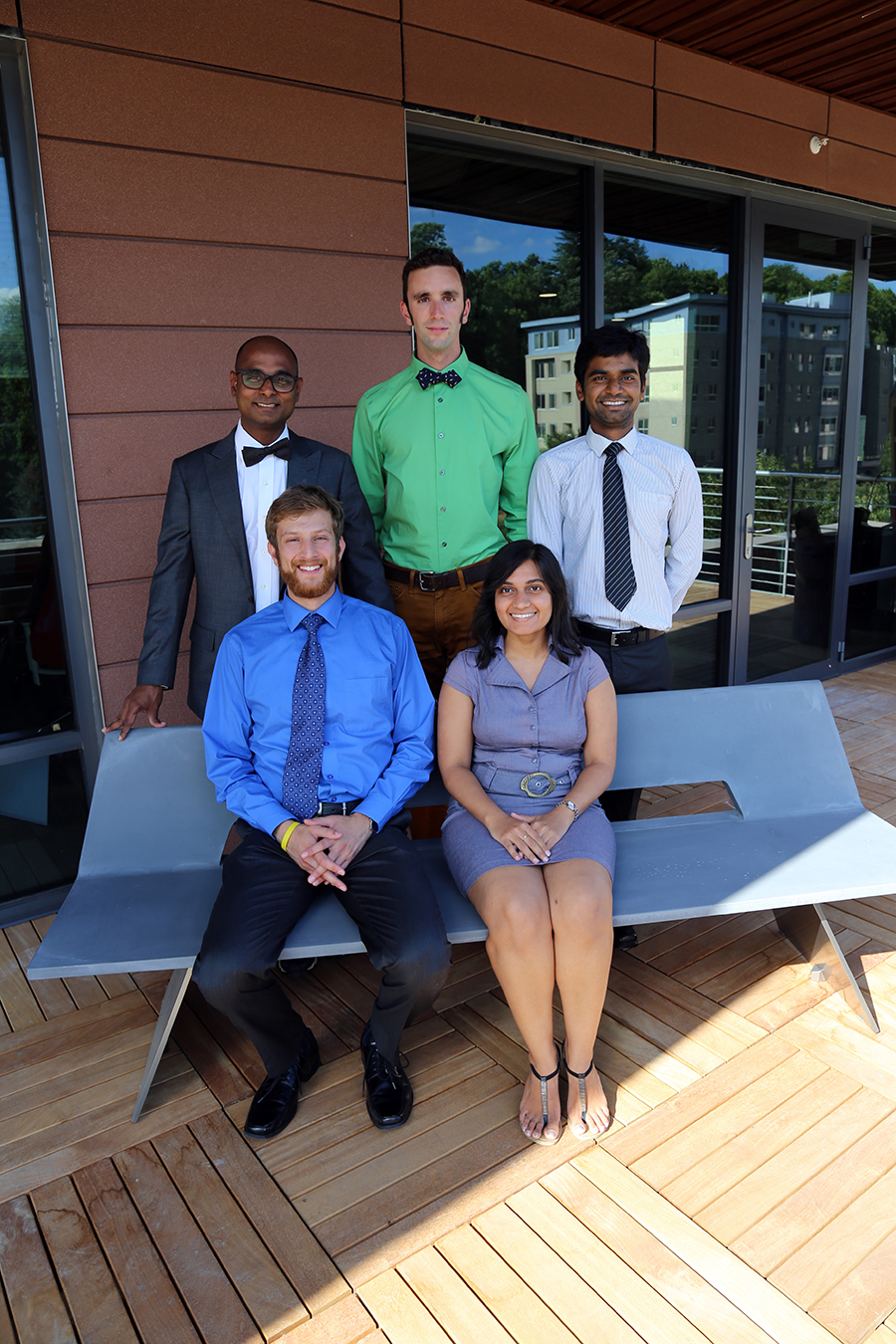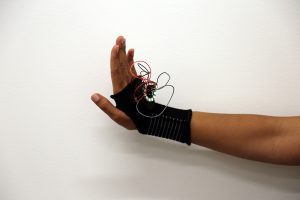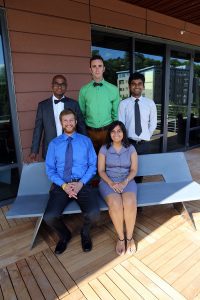
Rev Hardware Accelerator Team Lends a Hand to Workplace Injuries
Rev’s summer Hardware Accelerator is in the middle of Sprint 3, the phase in which member teams work towards prototyping their product ideas. Teams are engaging in one-on-one work with mentors and technical instructors, as well as collecting insight from successful local hardware-based startups. As the teams work toward their final product concepts and prepare for Demo Day on August 11th, we’ll be sharing profiles of them and the story of their progress.
Trusha Parekh lifts up her right hand. Balancing it parallel to the floor, she shows off the fitted black glove she’s wearing. It’s outfitted with sensors and LED lights, and as she holds her wrist at different angles, the sensors react and the glove flashes.
Trusha, a member of 2016 Rev Hardware Accelerator team FlexIt, is demonstrating how her team’s prototype would combat the onset of carpal tunnel syndrome for thousands of Americans in the workplace. “It’s both a preventive and corrective device,” explains FlexIt team member Jason Guss, a third-year PhD student in Biomedical Engineering at Cornell. The ergonomic glove is designed to track the hand from flexion to extension, lighting up and vibrating when hand posture indicates greater risk of carpal tunnel or other Repetitive Strain Injuries (RSI).
Jason became interested in startups a year ago when he worked alongside 2015 Rev Hardware Accelerator team Maidbot. He and Trusha are joined by fellow engineering graduate students Will Weinlandt, Fnu Apoorva, and Pankaj Singh to form the FlexIt team. Both Pankaj and Trusha hail from India – he from a small town outside Delhi, and she from Mumbai. The team came together in early 2016 through connections forged at Cornell University, where several of the team’s members collaborated in the same research lab.
One of the younger companies in the Hardware Accelerator, FlexIt has spent the past few weeks developing their prototype and working on their proof of concept. They’ve faced roadblocks in integrating the hardware aspect – their main expertise – with the software. “A big obstacle is actually making the sensor data biologically relevant,” notes Jason. “Sure, we can read the pressure or the angle on the hand, but making that relevant to preventing carpal tunnel – that’s the challenge.” The team plans to remain in Ithaca in the coming years to further develop their idea, with the goal of introducing their product for use in the daily workplace.
But while they’re a newer company, the FlexIt team is no stranger to the Rev workspace. They’ve has been spending time at Rev long before the program began, making entrepreneurial connections and tackling the business side of things. They credit the Hardware Accelerator as a big component of their growing success – the FlexIt glove was largely developed over the last few weeks using the equipment available. “He’s been mentoring us, helping us move ahead with the project,” Trusha says of Ken Rother, one of Rev’s Entrepreneurs-in-Residence and the Rev Hardware Accelerator Program Director. “We had nothing when we came here, it was just an idea,” she adds, pausing. “And now we have a working prototype.”
What’s next for FlexIt? They’re looking to introduce a Kickstarter fund in the fall, in addition to continuing to develop the product. In the long term, they hope to tackle other RSI injuries in the workplace with their technology. To see FlexIt’s glove in action, join us on August 11th for Demo Day. For more information about the Hardware Accelerator Program and its 2016 teams, click here.


